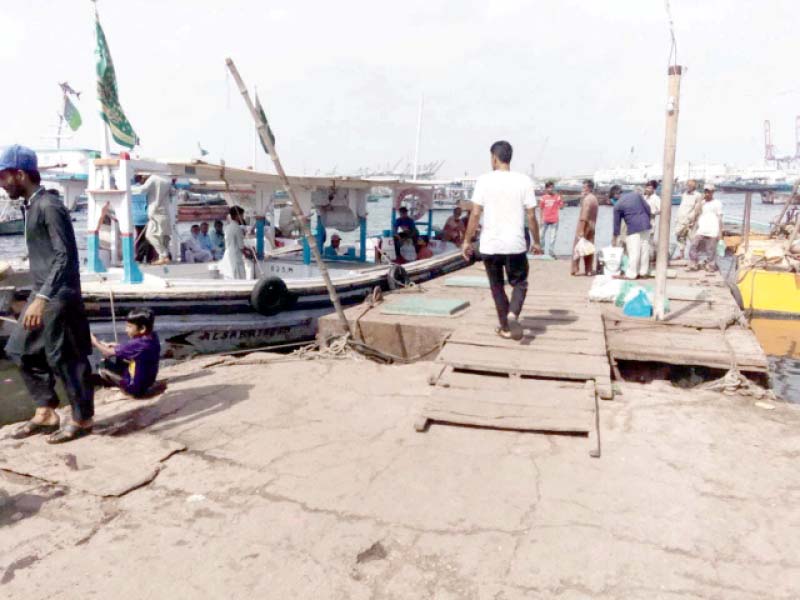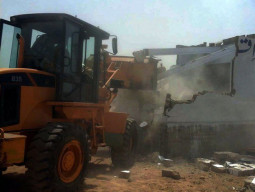
Sindh's islanders remain unaware of Covid-19
For villagers, social distancing only means staying away from city dwellers
KARACHI: With more than 13,000 Covid-19 cases emerging in the province since February, the rapid spread of the disease has become a matter of great concern for the people of Sindh. Forced self-isolation, the closure of schools and the suspension of businesses have brought life to a complete standstill across the province.
Surprisingly, however, for the residents of Salehabad, Baba and Bhit Islands, nothing seems to have changed over the last three months. A recent survey carried out by The Express Tribune revealed that island dwellers are still unaware of the existence of coronavirus because, so far, there have been no reported cases in any of the islands.
Owing to ignorance, the concept of social distancing, frequent hand-washing, and the observation of other preventative measures are absent from people’s lives. Villagers can be seen going to mosques for prayers, flocking to shops and holding large gatherings per usual. What is more, with Eid just around the corner, their outdoor activities have increased more than ever before.
No awareness campaigns
Speaking to The Express Tribune, a resident of Baba Island said that the government did not launch an awareness campaign for the people of the islands, because of which they do not know about preventative measures.
“Villagers came to know through the television that there is a deadly disease spreading in Karachi and other parts of Pakistan, but since there have been no cases here, people cannot relate to it. We are not taking any special measures as shown on TV,” he said.
The total population of the three islands is about 60,000 to 70,000, while the rate of literacy is only five per cent. Per residents, they already lead a confined life because they are cut off from the main cities. Therefore, gathering in the streets or going to shops is their only source of leisure.
“Fishing is the only source of livelihood for the residents of the islands. However, when the authorities banned finishing since a lockdown was imposed in Karachi, we realised that something was seriously wrong. Nonetheless, for the villagers, coronavirus is something that only exists in cities. What do we have to do with it?” he questioned.
Seawater - the antidote to diseases
According to the people of Bhit Island, all of their life activities, including entertainment, employment and business, are related to the sea. Therefore, they consider seawater to be an antidote for all kinds of diseases and epidemics.
“So far, not a single villager has fallen prey to coronavirus. People here believe that if they dived into the sea once a day, all diseases are eliminated,” he revealed.
Deeper concerns
According to the shopkeepers of Baba, Bhit and Salehabad Islands, when the lockdown was imposed islanders were prohibited from going to fishing, a starvation-like situation had occurred on the islands. However, the government later sent help under the Ehsaas Programme.
“Apart from the government, some philanthropic organisations also distributed rations among the villagers because shops had run out of food supplies. However, poor villagers were more concerned about food supplies and the ban on fishing,” one of the shopkeepers said, adding that people still do not care about the disease so precautions are not taken.
When asked about health facilities on the islands, the shopkeeper said that in case of an emergency or a major illness, villagers have to transport the patients to Karachi via a boat as there are no adequate medical facilities available on the islands.
“Even though most islanders don’t know what coronavirus is, we have concluded that we will not get any disease if we stay on the islands,” the shopkeeper said. “For us, social distancing means nothing more than staying away from the people of the city.”
Published in The Express Tribune, May 14th, 2020.















COMMENTS
Comments are moderated and generally will be posted if they are on-topic and not abusive.
For more information, please see our Comments FAQ